Sealife guideThe Muraenidae familyThe taxonomy of marine species
Explore the taxonomy of the sea vertebrates including the cetaceans like the whales or the dolphins, the sea birds, the fish, the sharks and the sea turtles !

Banded moray
(Gymnothorax rueppelliae)
(Gymnothorax rueppelliae)

Banded mud moray
(Gymnothorax chlamydatus)
(Gymnothorax chlamydatus)

Barred-fin moray eel
(Gymnothorax zonipectis)
(Gymnothorax zonipectis)

Chain moray
(Echidna catenata)
(Echidna catenata)

Fangtooth moray
(Enchelycore anatina)
(Enchelycore anatina)

Fimbriated moray
(Gymnothorax fimbriatus)
(Gymnothorax fimbriatus)

Goldentail moray
(Gymnothorax miliaris)
(Gymnothorax miliaris)

Green moray eel
(Gymnothorax funebris)
(Gymnothorax funebris)

Grey moray
(Gymnothorax griseus)
(Gymnothorax griseus)

Laced moray eel
(Gymnothorax favagineus)
(Gymnothorax favagineus)

Lipspot moray
(Gymnothorax chilospilus)
(Gymnothorax chilospilus)
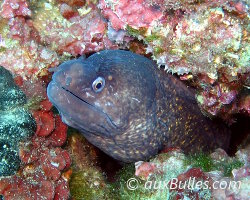
Mediterranean moray eel
(Muraena helena)
(Muraena helena)
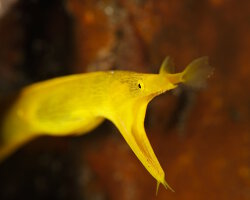
Ribbon eel
(Rhinomuraena quaesita)
(Rhinomuraena quaesita)

Snowflake moray
(Echidna nebulosa)
(Echidna nebulosa)

Undulated moray
(Gymnothorax undulatus)
(Gymnothorax undulatus)

White eyed moray
(Gymnothorax thyrsoideus)
(Gymnothorax thyrsoideus)
Our latestUpdates
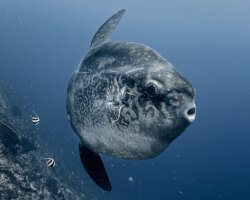
Friday, September 5th 2025
The bump-head sunfish
Learn about the bump-head sunfish (Mola alexandrini), the world's heaviest bony fish, its habitat in tropical and temperate oceans, diet of jellyfish, deep-water behavior and record size over 6,000 lbs.
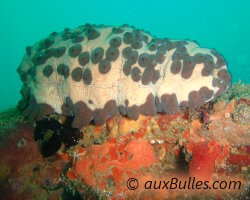
Wednesday, September 3rd 2025
The chocolate chip sea cucumber
The chocolate chip sea cucumber has a massive cylindrical body that is beige in color, covered with a set of dark brown pustules resembling chocolate chips that protrude slightly from the surface, giving it a resemblance to a cookie, hence its french name. It can reach a length of about 12 inches when fully grown.
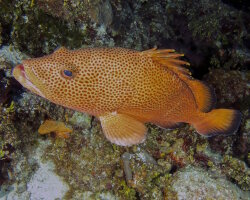
Monday, September 1st 2025
The red hind grouper
The red hind grouper has a distinctive appearance, usually beige to brown in color, with numerous red or brown spots covering its entire body and the base of its fins. It is often found in the shallow waters of coral reefs and rocky areas, where it hides in crevices and cavities.
Photo of the Day
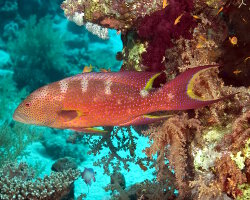
Mérou croissant de lune
(Variola louti)
(Variola louti)
